Welcome to another issue of The Newport Cornucopia where we dig through the newspapers archives for interesting news articles and adverts. All articles are posted verbatim and most headlines are original (headlines in quotes are my own).

Court-y-Bella Train Station
The Court-y-Bella station was opened on 23 December 1850 as the temporary southern terminus of the Monmouthshire Railway and Canal Company's Western Valleys line to Blaina.
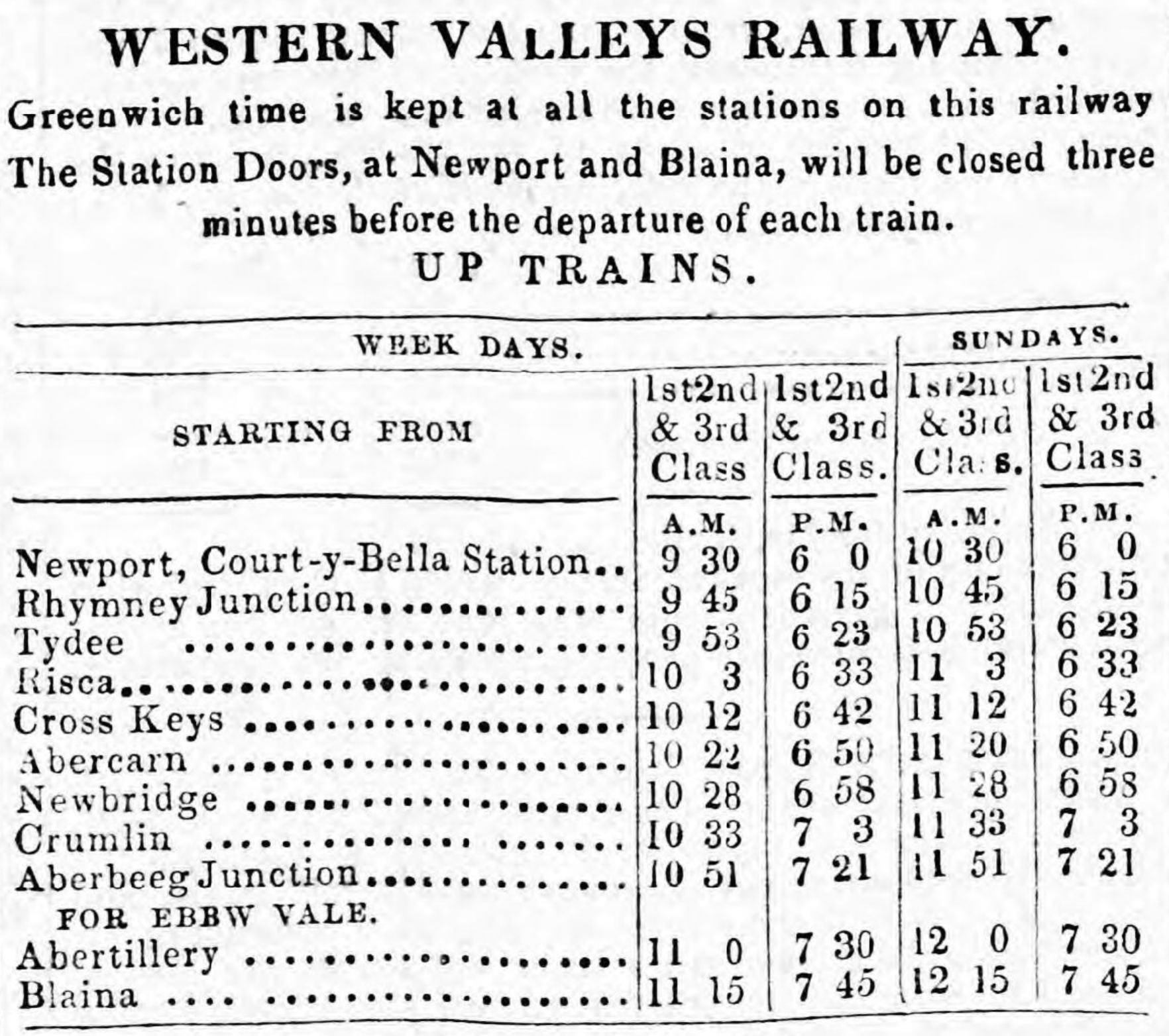
The station was only used for two years closing in August, 1852 when Newport Station opened.

In 1857, the wooden sheds and stone buildings at Courtybella were taken down and the material reused to provide carriage and wagon repair workshops at the Eastern and Western Valleys workshop in Bolt Street, Newport.
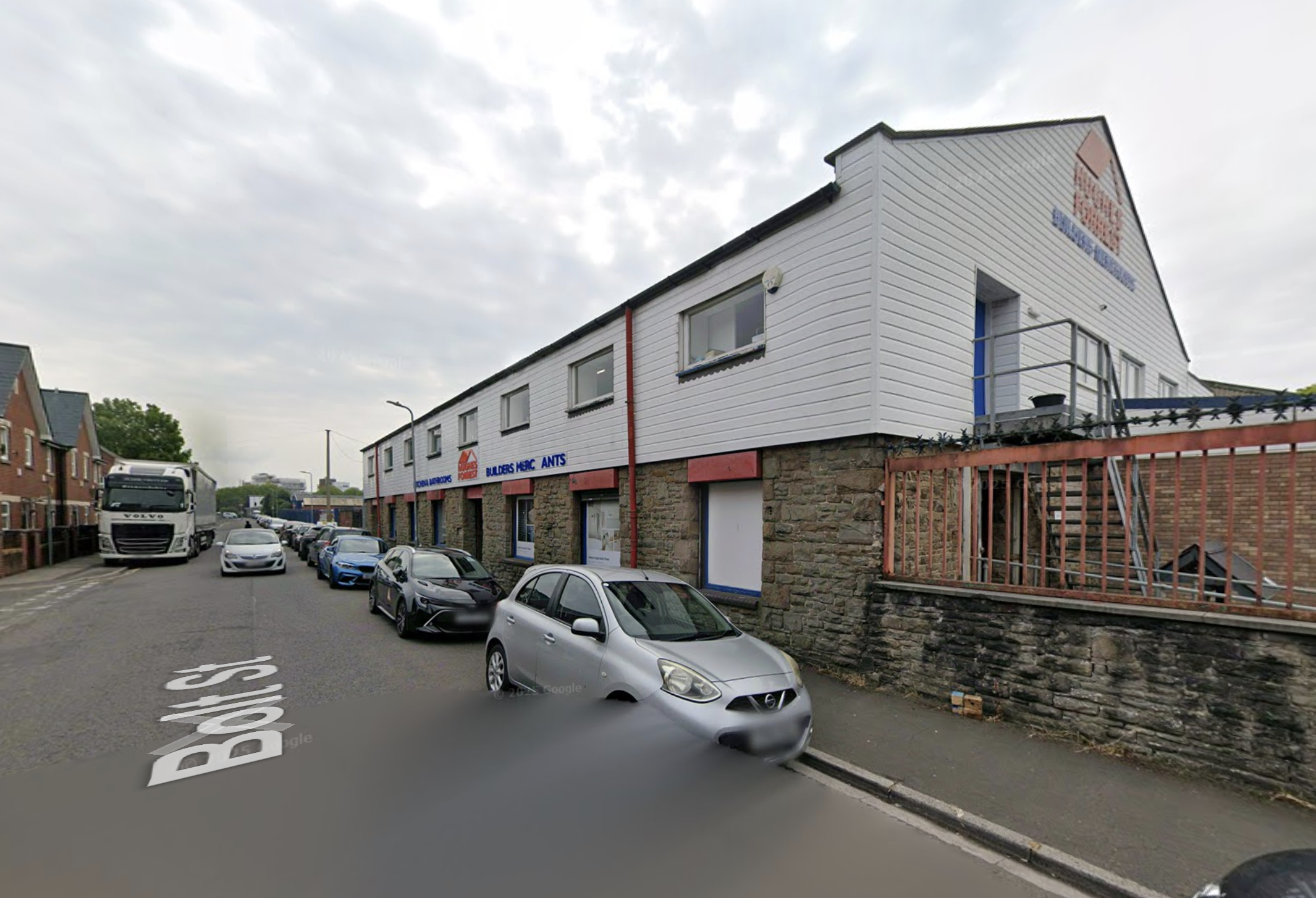
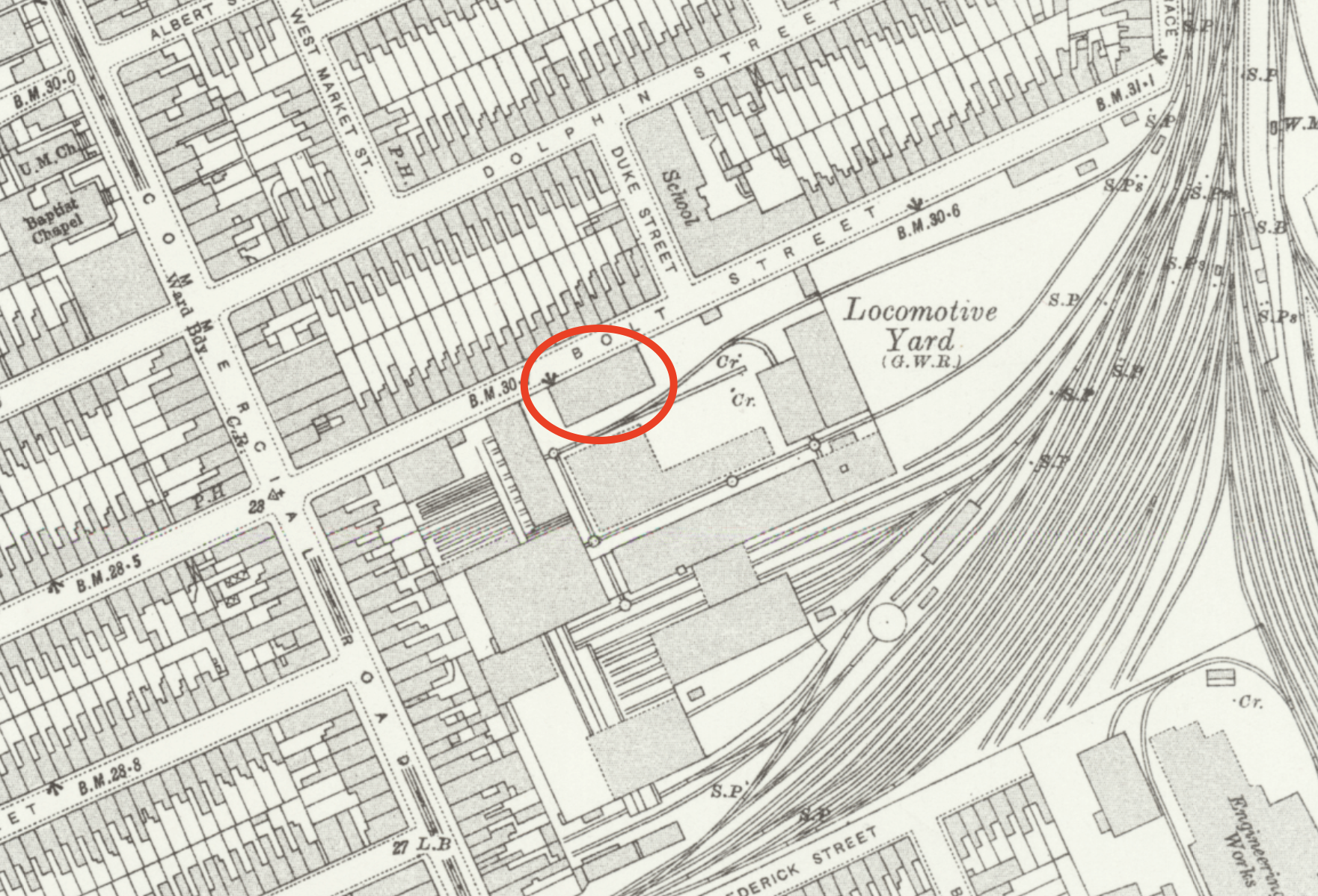
This building on Bolt Street shows on an old map as part of the locomotive yard so may have been built from some of the material moved from the Court-y-Bella station.
— Source: Wikipedia

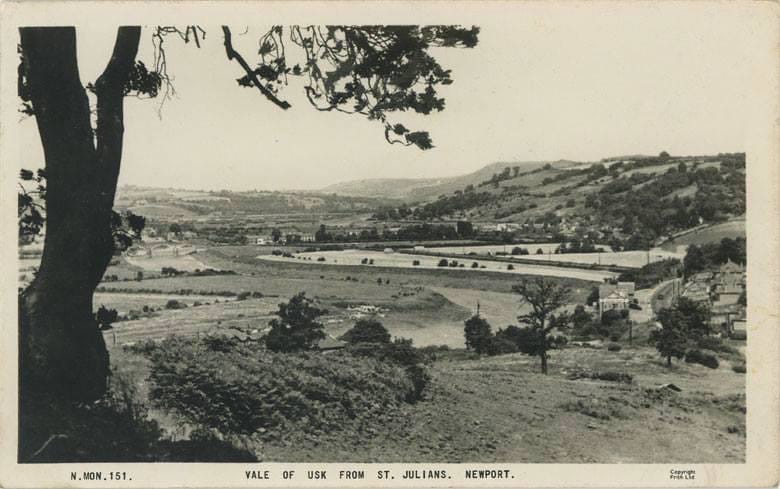

Abolition of Turnpikes
The whole of the toll gates in Monmouthshire and South Wales were abolished to-day, and the reoads declared perfectly free. The number of gates abolished is over 250, while the length of highway disturnpiked was 936 miles. For this relief Sir Henry Tyle, M.P., and Mr William Pritchard, of the Rhymney Iron Works are laregly to be thanked.
— South Wales Daily Times and Star of Gwent, 1st April, 1889 (Subscription Required)

'For Sale: The Windbound Tavern'

The Windbound Tavern was located on the east bank of the River Usk where Uskmouth Power Station is today.
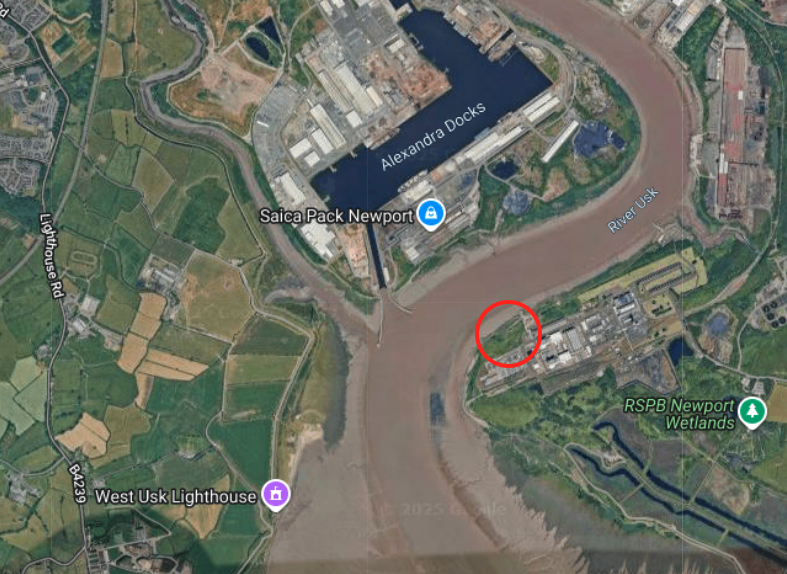
Back in 1840, there was very little in that area so perhaps trade came from the river.
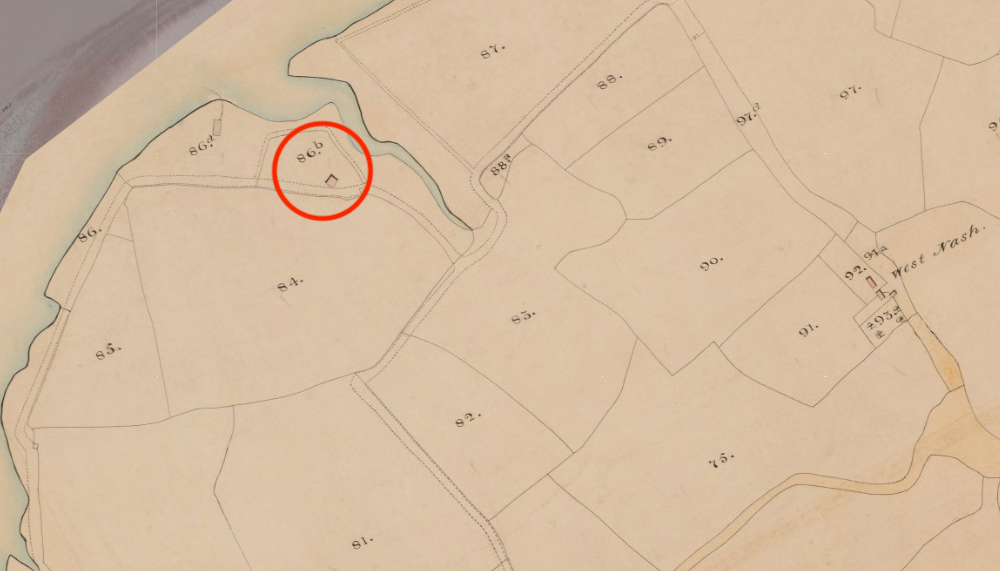



Drainage in Newport
It is to be lamented that we cannot write favourably on a subject which has for ages in many places been exercising a most destructive influence upon the health and morality of the human race. Though our observations in this instance are only intended to apply to Newport, yet we fear there. are many towns of the United Kingdom entitled to the description we are about to enter upon. Fortunately fertile happiness of the present generation, and it is to be hoped for the comfort of the future ones, England has had an interval of rest from the cruel wars which have hitherto convulsed her and during this period her legislators have had time to direct their attention to whatever was likely to promote sanatory reform, add to the morality, and lessen the causes of disease amongst her spreading population.
With this view there was introduced into parliament, "The Health of Towns Bill," the passing of which into a law we shall hail with the greatest delight, as we are convinced it will remove from our town a most fruitful source of evil.
The very defective state of the public drainage. — It will be remembered that Newport, with gigantic strides, has far outstepped the boundaries of the ancient borough, beyond which the powers of the Town Commissioners do not extend and in this new town, so to speak, we have chiefly, though not entirely, to remark upon the want of drainage.
In the old borough, where once stood an ancient monastery of good and peaceful friars, when the adjoining fields were covered with nature's flowers, and where, in times of yore, grazed the flocks which sufficed for food for the holy monks and all the neighbouring poor, and from whence no noxious disease ever took its night
— there is now a mighty and most degenerate change all that it retains now of former days is its name, but no longer associated with good and holy Friars' Fields, indeed, offers now a fair specimen of a locality where the good effects of draining have never been called into existence. Here the various plots of houses are intersected by pools and open ditches, teeming with rank offensive matter, destroying every sense, and polluting every current of vital air which hands its way into the crowded habitations.
Here morality is at its lowest ebb, and here, as in all such places, you find immorality of every kind and filthy places entwining and supporting each other. Let us have the Health of Towns Bill to destroy this sty of uncleanliness, and the habitations of immorality will crumble into ruins. Many, very many, indeed of our streets offer to become rivals with the Fields, so little care is taken in removing excrementitious matter and other refuse there are so many drains allowed to pour out their fetid contents into the open streets, and under the public nose.
In erecting houses, no due provision is made for the proper drainage of the various premises; main sewers are not by any means so frequent, or auxiliary ones so numerous, as the want requires. Those already in existence are now choked up. and ooze out their filthy contents, subsidiary pools soon form, which increase in size, and eventually become dangerous sources of disease to the community.
Under this difficulty are most of the streets placed when they are first laid out, whilst the houses are gradually becoming filled with a greater number of inhabitants, .....(fold in newspaper).... sources from whence arise so much decomposing matter enormously increase, wherever the means for conveying it away have never been afforded.
Hence it is that in such places fever always lurks, and every year adds to the number of its victims. Increasing as Newport is in the number of houses and density of population, 'twould be well were alarm to be taken from the unenviable notoriety Liverpool has obtained for the state of its inhabitants. And did we not advert to an evil of such vital consequences to its welfare, we should not shew a true interest in behalf of a town which from every fact of its history and locality, we do not hesitate to write will become one of the first of commercial importance in the kingdom.
[At a time when the cholera is making such progress in other countries, and is approaching our own, the foregoing remarks, by an eminent medical gentleman of Newport, will be considered opportune.]
— Monmouthshire Merlin, 6th November, 1847

'Levelling out Hill Street's Rugged Hillocks'
The nuisances so long staring passengers out of countenance in this street, are being removed and remedied. The Tredegar Wharf Company have contracted with Mr. Moses Scard, and that able reformer of bad roads is now busily employed with a large physical force of improvers. levelling the rugged hillocks, and smoothing the surface of the street, which will shortly present a handsome inclined plane, fit for the Commissioners to adopt. Once under the guardianship of that careful body, the street will advance rapidly in its pleasing appearance. This Mosaic work is very gratifying to the inhabitants.
— Monmouthshire Merlin, 23rd March, 1844

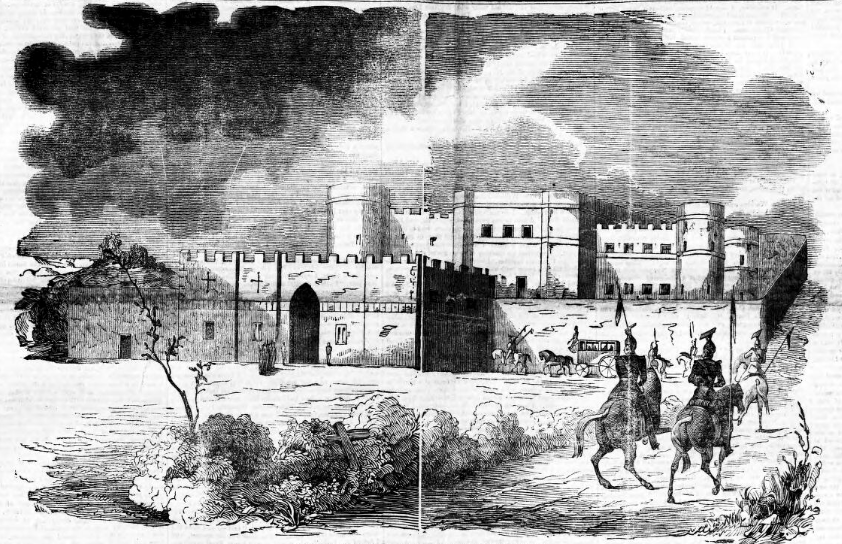

German Kindergarten
An entertainment of considerable interest was given on Friday last, 29th ult., at the Anglo-German School, 4, Victoria-place, by Mrs Korth, for which a number of ladies had been invited. The programme consisted of a series of most interesting recitations and songs, both in English and German, all being very creditably rendered even by the very youngest pupils of the kindergarten. We designedly say "interesting," as — considering the tender age of the performers — their execution reflects great credit upon Mrs Korth's method of education, especially with regard to German.
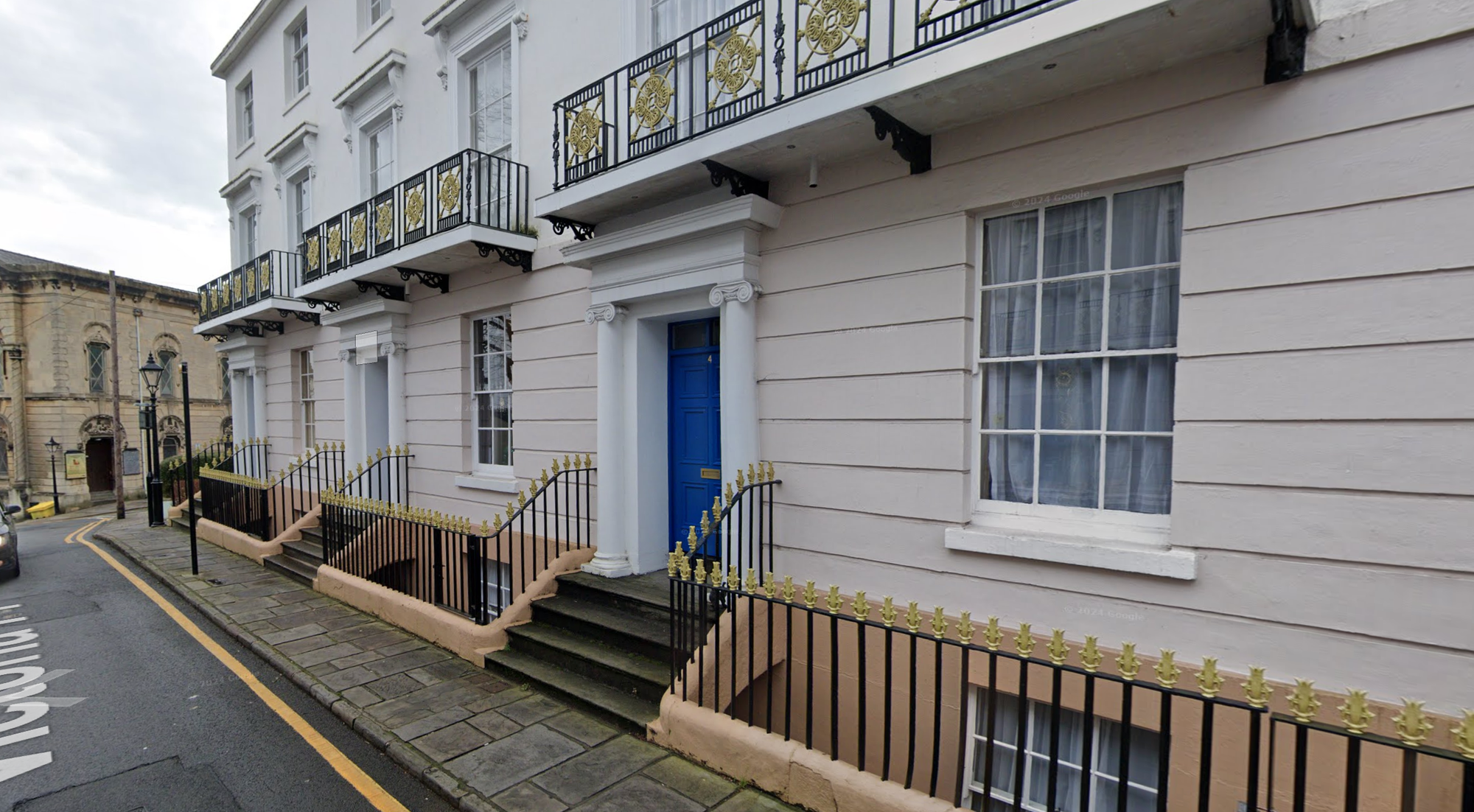
A very suitable prologue entitled "Come, Lord Jesus, be our guest," delivered by Mrs Korth, opened the programme, upon which Mr Llewelyn's two little children treated the audience in a delightfully quaint manner with "The Little Boy and the Squire," in German, followed by "Little Robin Redbreast" and "Obedience to Parents," both in English. Then followed "Gothe as Wanderer," in German, rendered by Mary Toft and Muriel Wallis with "The Battle of Waterloo" and "The Christian and his Echo," all of which elicited hearty and well merited applause. German songs, executed by all pupils with equaal success, and accompanied on the piano by Professor Bumstead, delighted the audience during the remainder of the time, and it must be confessed that the entertainment as a whole certainly tends to show what successes can be achieved with young minds who enjoy a judicous and wholesome training.
— South Wales Daily Times and Star of Gwent, 1st April, 1889 (Subscription Required)


'Stealing Penny Pies and a Penny'
James Thomas, alias James Horton, was charged with stealing three penny pies and a penny, and assaulting the poor old prosecutor, Peter Kenny. The larceny was not established, but prisoner was convicted in 10s. and costs, or fourteen days' imprisonment for the assault.
— Monmouthshire Merlin, 6th November, 1847
'Disgraceful Language'
Eliza King was fined 5s., and 6s. 6d. costs, for using disgraceful language, and otherwise improperly conducting herself, in the public street, on Wednesday night. Being also without "money or scrip in her purse," she was sent to the House of Correction.
— Monmouthshire Merlin, 8th November, 1845
Stealing a Wife
Ebenezer Evans was charged by William Hanford, keeper of the Blue Anchor beer-house in this town, with having stolen his wife! £70, and three carpet bags-contents not set forth. Much mirth was anticipated by the usual court assembly, but in consequence of the non-appearance of Mr. Hanford, who, it was supposed, had been cajoled by his repentant, though frail, worse-half to drop proceedings, the case was dismissed.
— Monmouthshire Merlin, 8th November, 1845
'Nymphs of the Pave'
Two nymphs of the pave, well acquainted with the position of the dock in the police court, were charged with being disorderly. Convicted in 3s. 6d. each.
— Monmouthshire Merlin, 29th March, 1851
Stealing a Pair of Scissors
Patrick Gallaghan, a youth, was charged with stealing a pair of scissors, the property of Adam Jones, Stow turnpike-gate keeper. Mr. Woollett for the prosecution. Last Friday, the prisoner, who accompanied his father, a bagpipe player, came to prosecutor's house, where the scissors had been left on the sill of the window. After the music had ceased, the scissors were missed, and P. C. Bath coming by, received information, and captured the strolling son of Apollo, with the scissors in his possession. Committed for trial at the assizes.
— Monmouthshire Merlin, 29th March, 1851
'Stealing Three Teaspoons'
Nicholas Mills, an aged man, was charged with stealing three tea spoons, the property of John Phillips, landlord of the Coach and Horses on, High-street. Mr. Woollett for the prosecution. Phillips said he had recently bought two dozen spoons, for business, and had his initials placed on all but he had lost no less than thirteen of them since; three of which—those now produced—were left at the Steam Packet inn, by the prisoner, three weeks ago, in lieu of money. Some of the spoons had bean lost more than a year, but he could not say when those produced hud been lost; and upon this "weak point," the case was dismissed.
— Monmouthshire Merlin, 29th March, 1851
The Law of the Road
Thomas Holmes was charged with being.drunk and disorderly, at ten o'clock, on Sunday night, io Commeicial-streel, according to the evidence of P.C. Bath.—Holmts had quarrelled with a man named Wm. Davies, as to which of the two should have the inside of the road Holmes having two ladies on his arms, and being desirous of keeping the house side, as more agreeable to his fair companions.
The Mayor said it was always n mark of politeness to allow a lady the inside of the footpath.
Prisoner was drunk but his opponent was sober; and as the former knocked up a terrible row, about the impoliteness of Davies, he was separated from the ladies, and locked up, after sending poor Davies's head nearly through the doorway of Mr. Whitehall's shop, to see the hour. Fined 5s., and 1s. 6d. costs, or fourteen days imprisonment.
— Monmouthshire Merlin, 29th March, 1851
'Ordered to be Well Whipped'
Wm. Harris, a little boy who had often been in court before, was charged with vagrancy. Ordered to be well whipped.
— Monmouthshire Merlin, 29th March, 1851
A Storm
Daniel and Margaret Evans were charged with assisting Ellen Evans, late of the Morning Star, "wid a poker." Just after the case was described by Mrs. Ellen Evans, she got into a hurricane of passion, answering to the dramatic request of — "Blow winds and crack your jaws, rage, blow!" — screamed, raved, shook her fist, and swore that the wicked wretch, Mrs. Peggy Evans, had made her a lone wonan, by taking away her (Ellen's) husband. Ellen and the case dismissed, after having given the Court a hint of the Bay of Biscay in a mighty wind.
— Monmouthshire Merlin, 29th March, 1851
'Ragged Urchins'
Two dirty and ragged urchins were charged with stealing rope, the property of the Messrs. Piper. George Booth, marine stores dealer, proved buying the rope produced, of one of the prisoners. —Discharged.
— Monmouthshire Merlin, 29th March, 1851

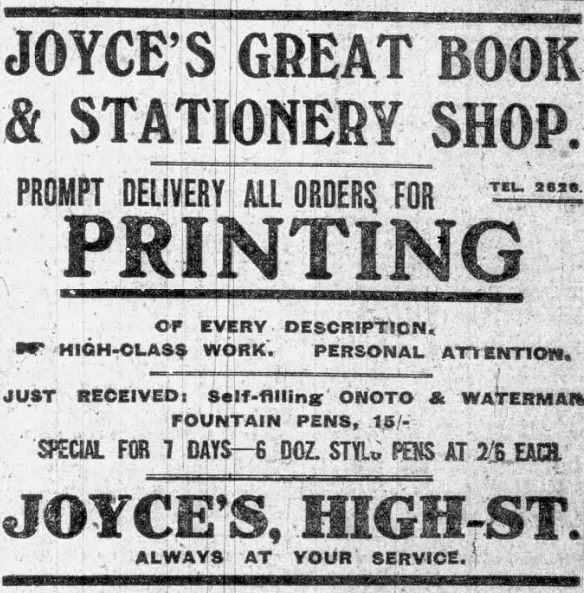

'The Iron Prince Screw Steamer'
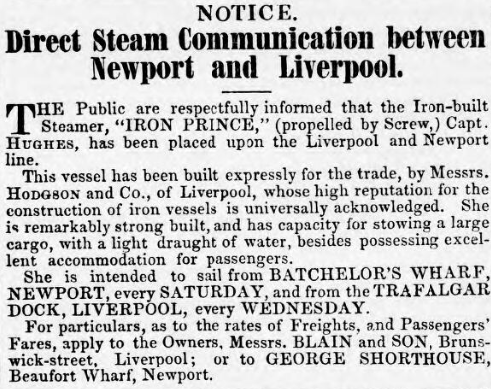
The Iron Prince was a screw steamer built by James Hodgson & Co., Liverpool in 1844 and launched in January 1845. According to the Liverpool Albion newspaper (13th January, 1845) the 55hp, 112ft ship was believed to be 'the first steamer that ever was launched with her machinery, masts, and rigging in their places.
The ship sailed back and forth between Liverpool and Newport starting in September 1845 until being sold in 1848. It then sailed between Liverpool and Newry and Waterford before being registered in Sydney in 1859 and Hong Kong in 1872.


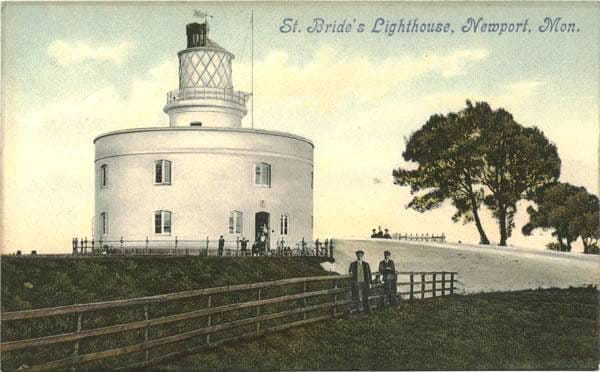

Newport Alms Houses
The benevolent who pass by the chaste and beautiful building now advancing towards completion on the ground where recently tottered the ruinous and unsightly pile—the dilapidated Alms-Houses on Stow Hill, must be gratified at the phoenix-like change and we have pleasure in adding to such feelings of gratification, by announcing that, at the suggestion of a gentleman who is never tired in the performance of good works, an admirable opportunity of affording an increased extent of accommodation for the residence of poor persons is about to be availed of.
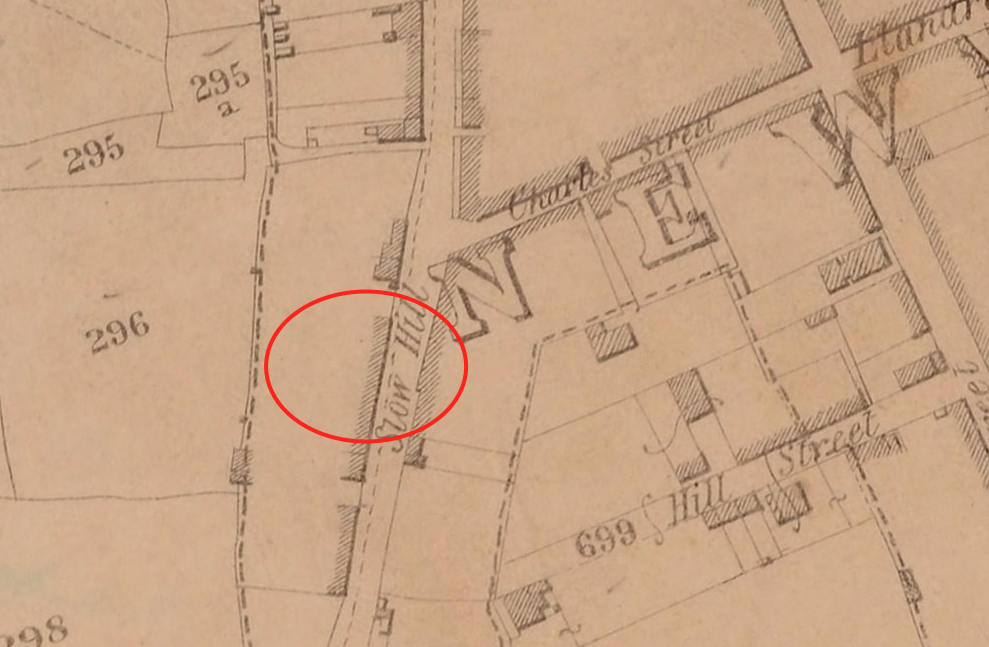
Previously to placing on the roof, the gentleman to whom we refer, suggested that two additional dwellings might be added at compaiatively small expense. The proposal was embraced by the trustees, and a subscription is now on foot for the accomplishment of that benign purpose. We shall give the subscribers' names, with other particulars, in our next.
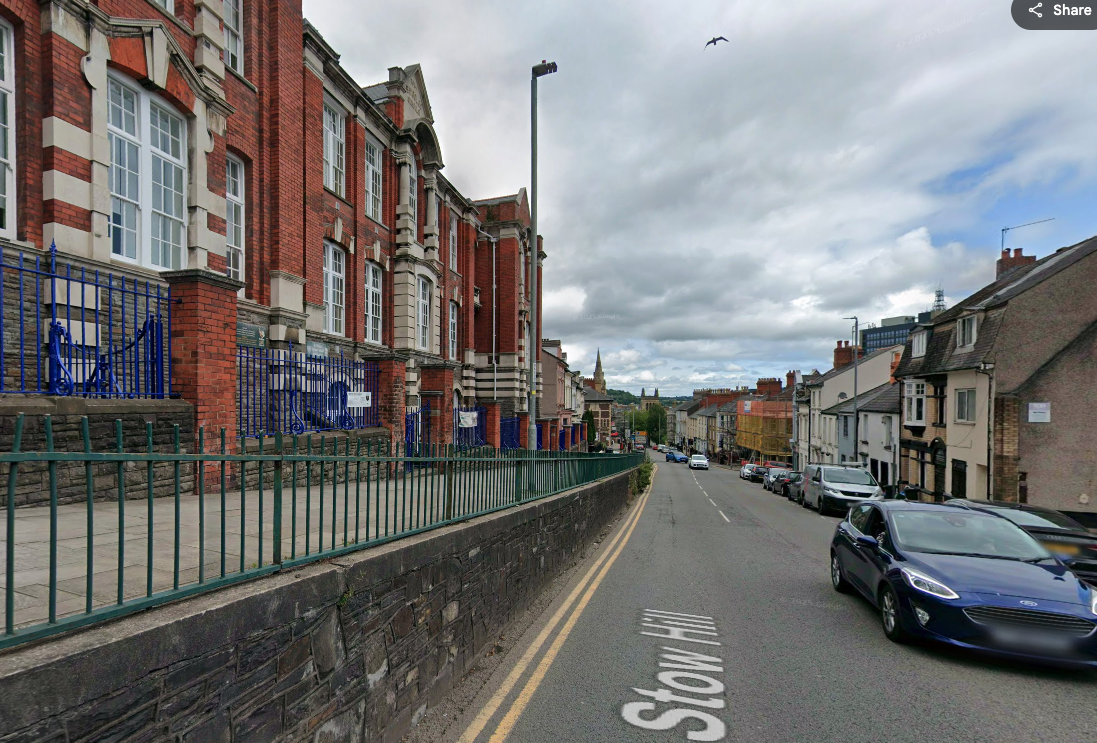
— Monmouthshire Merlin, 1st November, 1845

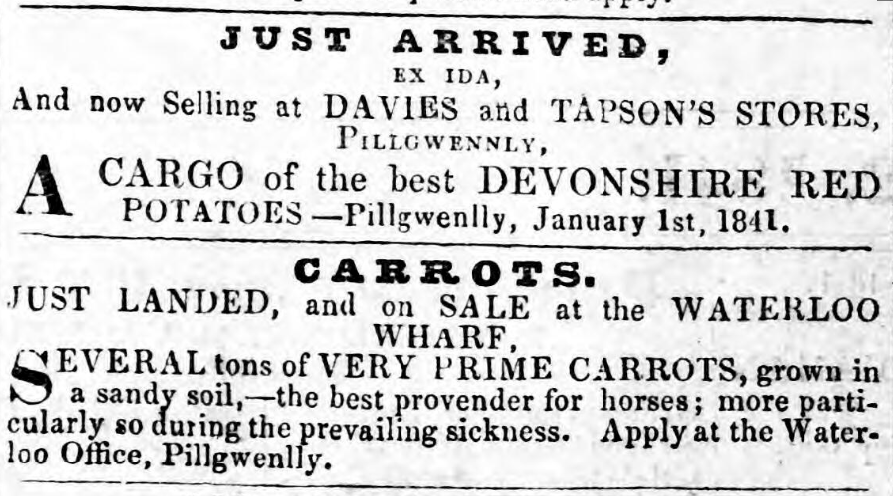

Newport Fair
This fair, which is generally large, was not so this year as to stock, with the exception of pigs which appeared in great numbers, and of good sort. We attribute the smallness of the fair, in a great, measure, to a market being held weekly in Newport, instead of monthly, as wwas the case before the Newport Cattle Market was established.
We noticed some excellent heifers, of the Durham breed, fed by Mr. John Waters, Goldcliff, which were soon disposed of at high prices. The prices were nearly as follows: beef, to sink the offal, from 5 1/2d. to 6 1/2d. per lb. sheep, 6d. to 6 1/2d., pigs per score, 8s. 6d. to 9s.
On the whole, we may state that every kind of stock sold well, and almost a clearance was effected. In the horse department, a great number were offered those of a useful description, either for carriage or saddle purposes, meeting a ready sale, at good prices.
— Monmouthshire Merlin, 8th November, 1845



'For Sale: Genteel Residence on Clifton Place'

A row of 7 houses (nos. 2-8) on Clifton Place are Grade-II listed with 2—6 dating to the mid 1840s and 7 and 8 from later. The advert in the Monmouthshire Merlin from 1848 list the 'genteel residence' as being newly built. The property had five bedrooms, two parlours, drawing room, two kitchens, larder, cellar and a china closet.
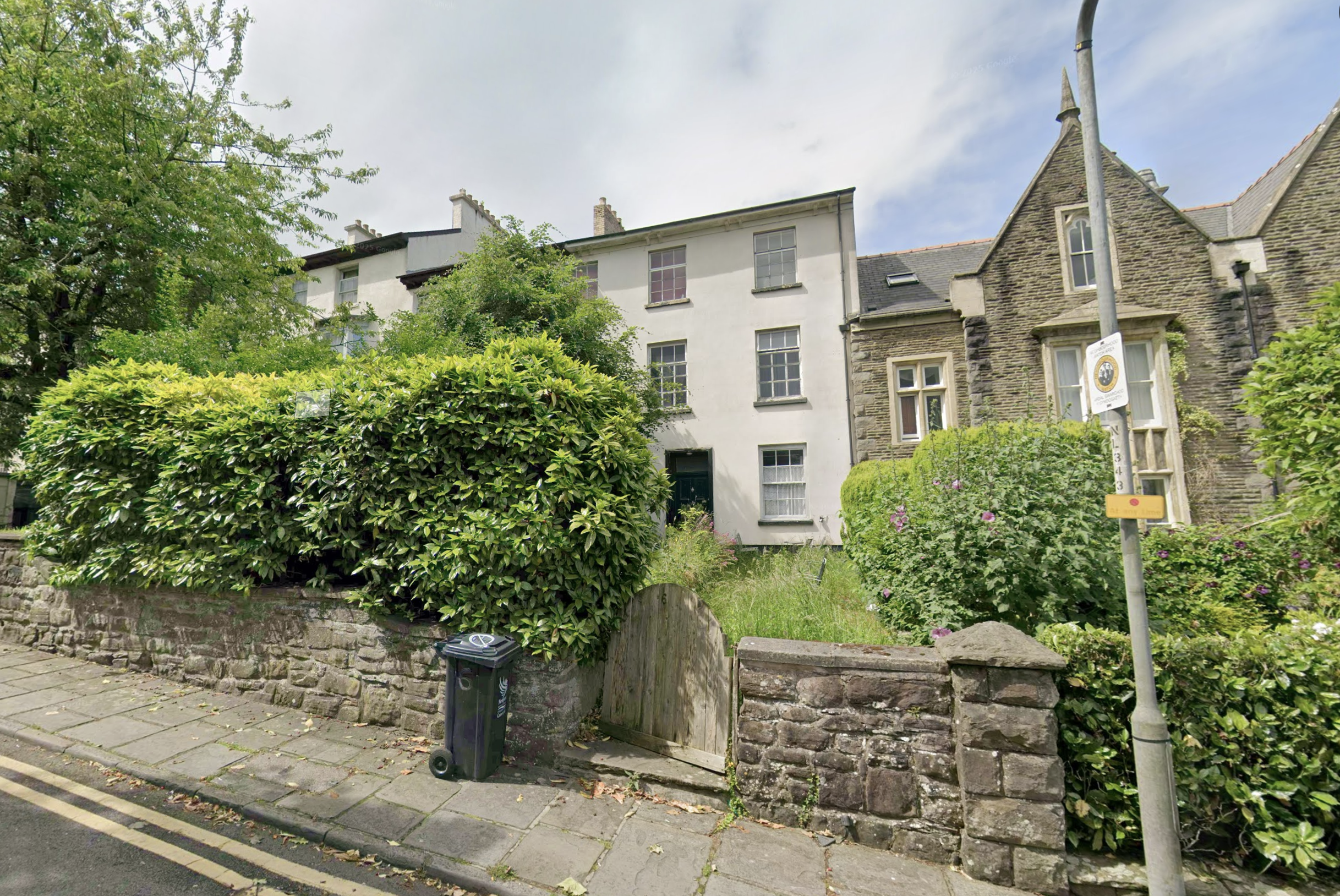
There was a mention of the houses being built in March 1844 when an article mentioned a quantity of lead pipe being stolen.

Land further along from the row of houses was for sale in 1849 May 1849. The row of houses back then was called Clifton Terrace.

No. 1, Clifton Place in 1846/47 was being run as a 'Boarding School for Young Ladies' by Mrs Simonnet who was a graduate of the University of Paris and a professor of languages and drawing.
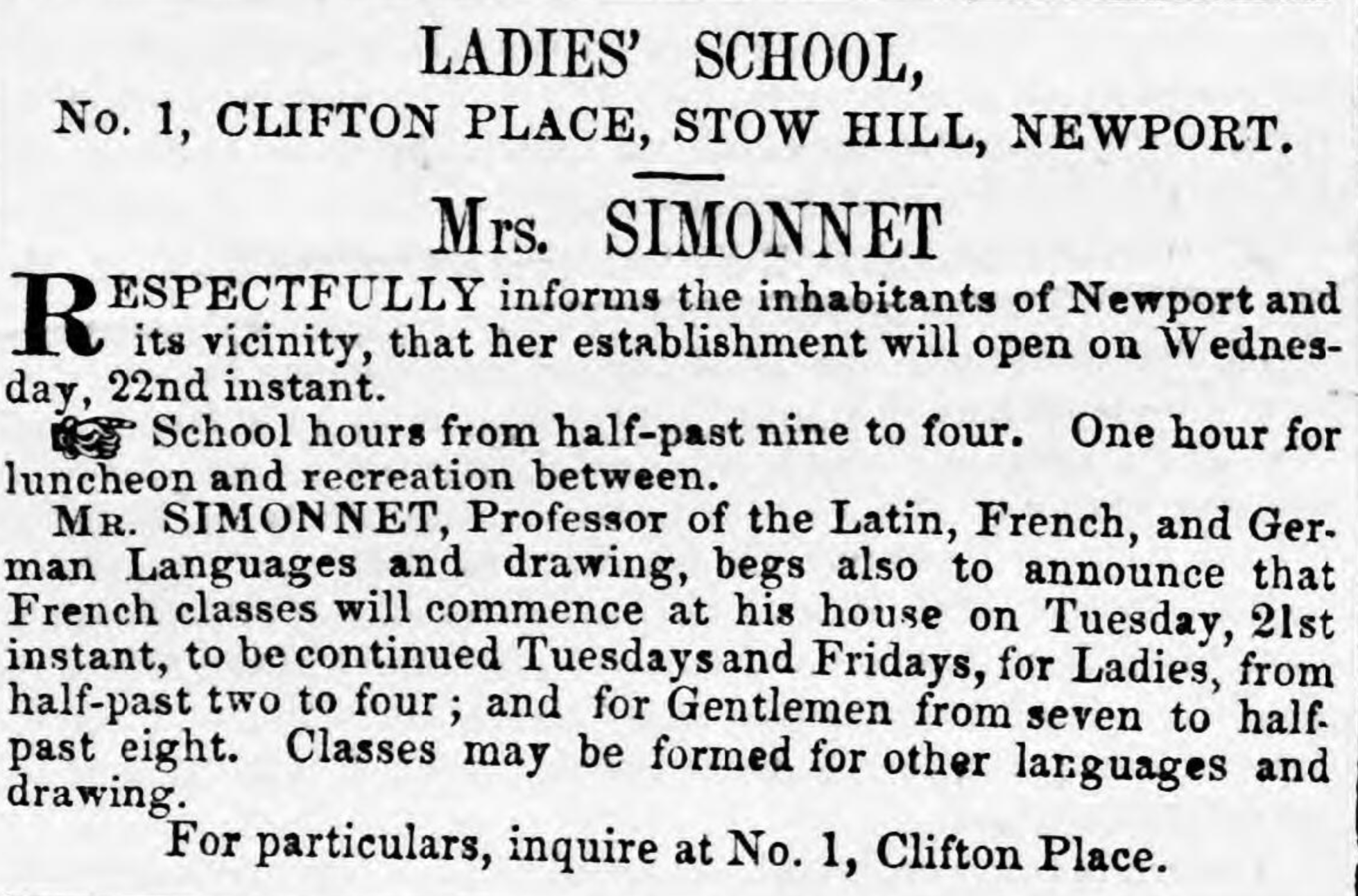
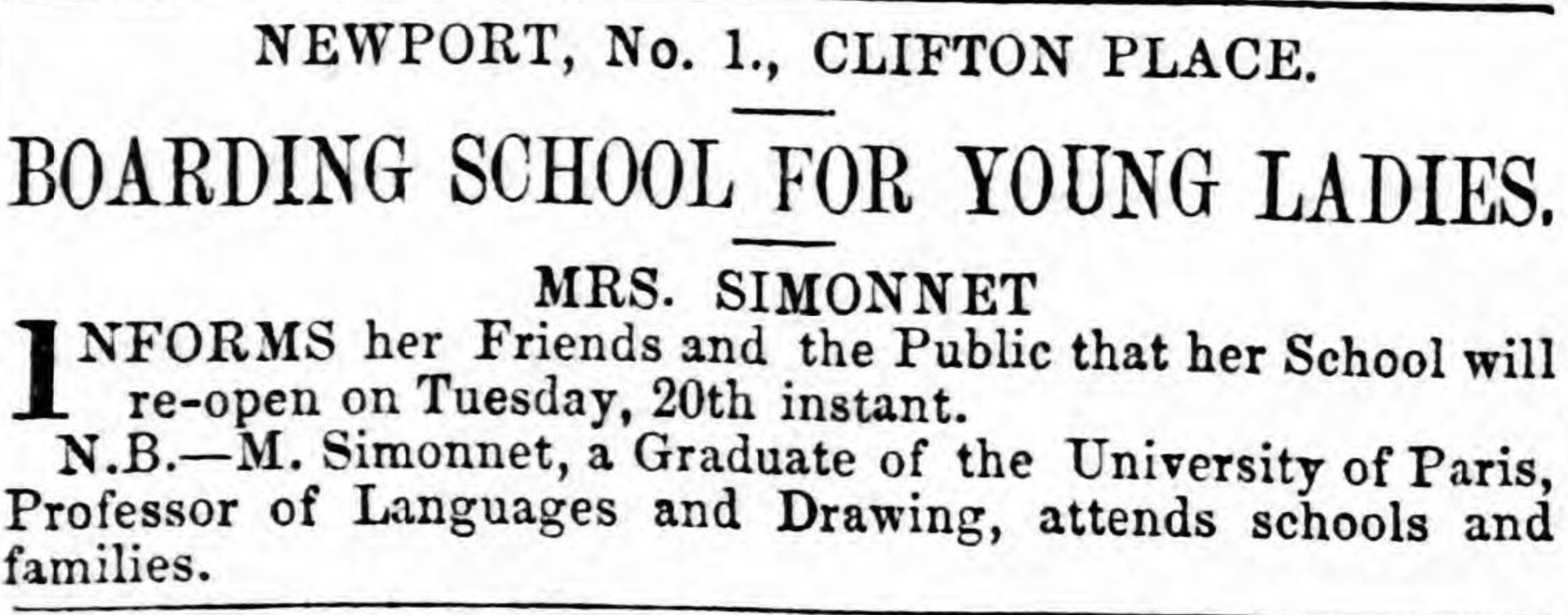
Monmouthshire Merlin, 18th July, 1846 & Monmouthshire Merlin, 10th July, 1847
The first advert is from 18th July 1846 and it appears that from the advert below dated 1st July, the house was purchased and very quickly converted into a school.
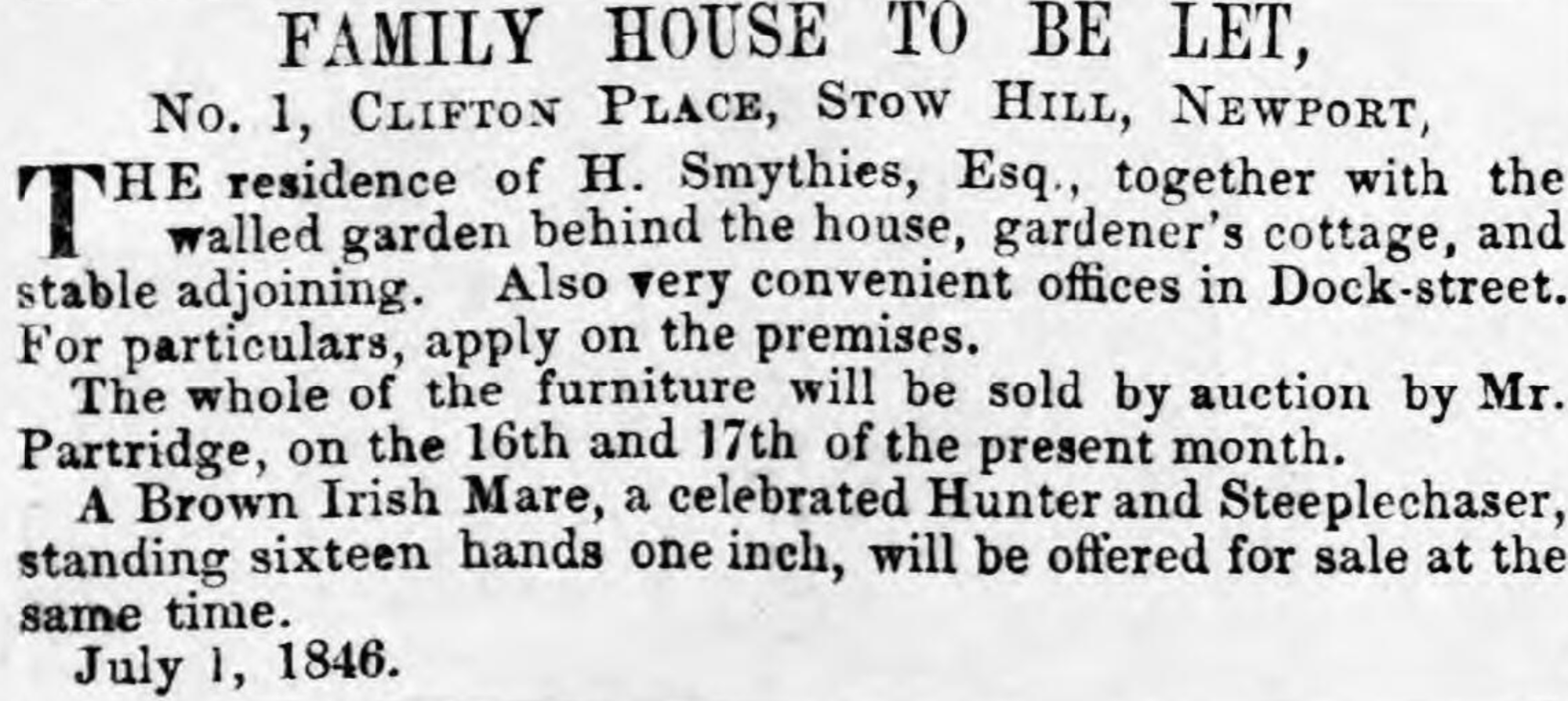

An Artful Dodge
We are informed that one of our worthy tradesmen in Commercial-street, has just been "done," by one of the swell mob. On a recent evening, at dusk, a very smartly-dressed gentleman walked into the shop of Mr. Matthews, bootmaker, 'Commercial-street, and said he should wish to be fitted with a good pair of boots.
Several pairs were accordingly shown him by the assiduous tradesman, and at length the gentleman fixed on a pair which he thought would at admirably. "But I will send you half-a-dozen pairs, to try on," said the tradesman, "if you'll oblige me by your residence." "Well, you can send to No. 5, Clifton Terrace, the residence of my brother," was the response; "but you must do so as quickly as possible."
The gentleman left, and the tradesman sent up his messenger with two odd boots of different pairs, intending to send the fellow to the fitting boot as soon as the messenger returned. Going up Stow Hill with the boots, the bearer was met by the gentleman, who exclaimed, Oh. my lad, you have the boots—"I'll take them up for you, as I'm in a hurry." The boots were softly and thankfully given up.
"No. 5, Clifton Terrace," has no inhabitant—is not yet completed; and the "gentleman" has made himself and the odd boots "very scarce," perhaps to match the boots with fellows in some other place.
— Monmouthshire Merlin, 9th November, 1844

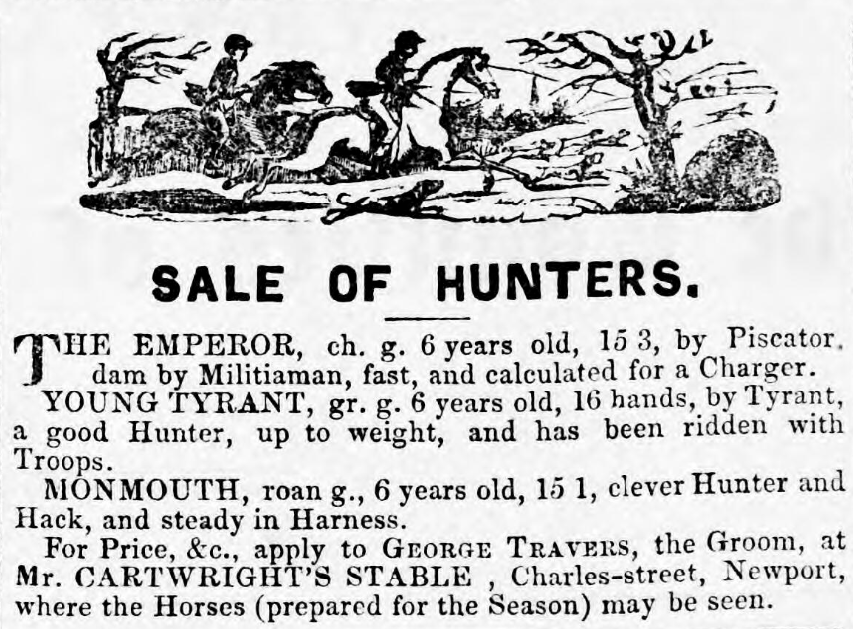

Keith and Tudor's Circus
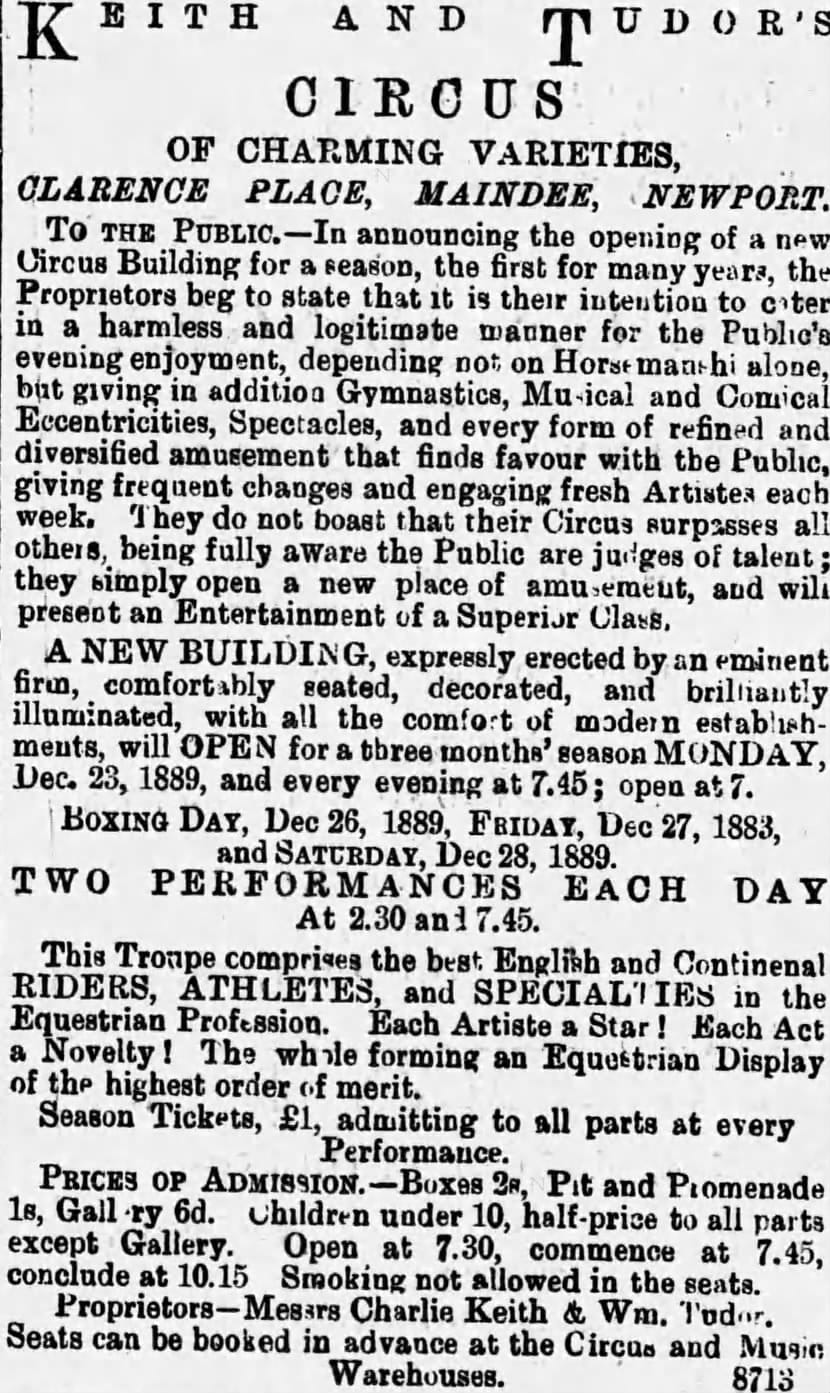
For three months, Keith and Tudor's Circus set up a custom building in Clarence Place where gymnastics, music, 'eccentricities' and horse riders entertained people of the town. It was part of an eighteen month tour which also included Yorkshire, Norfolk and Suffolk. The last performance was on 12th April, 1890 and featured 'various contests and a duck hunt'.


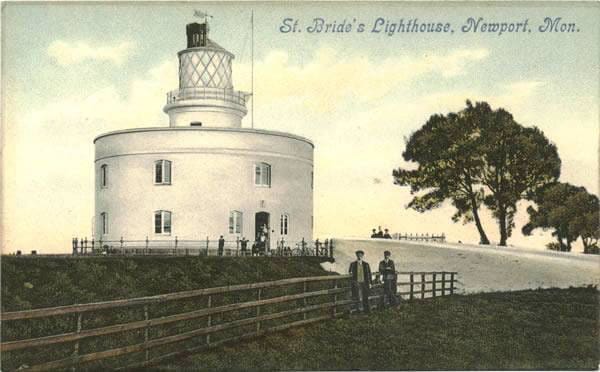

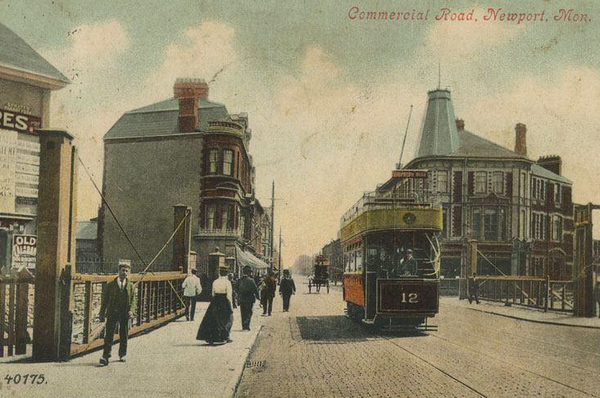
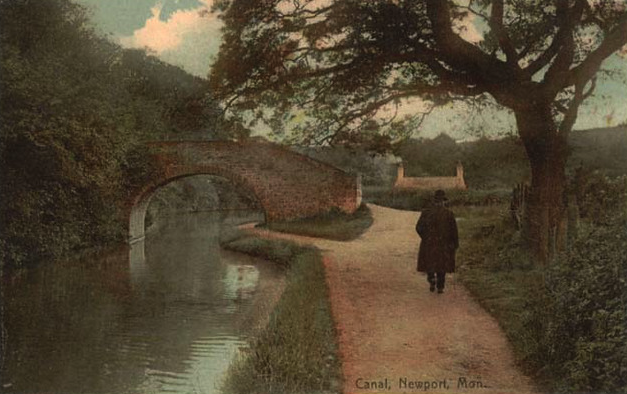
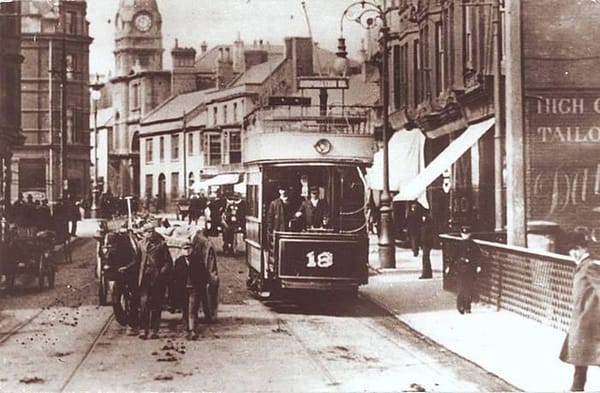
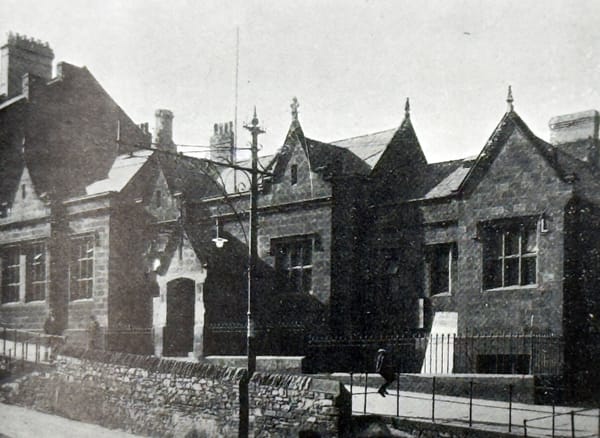
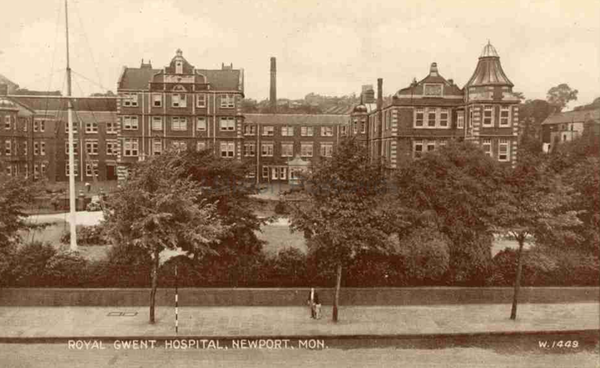
Member discussion